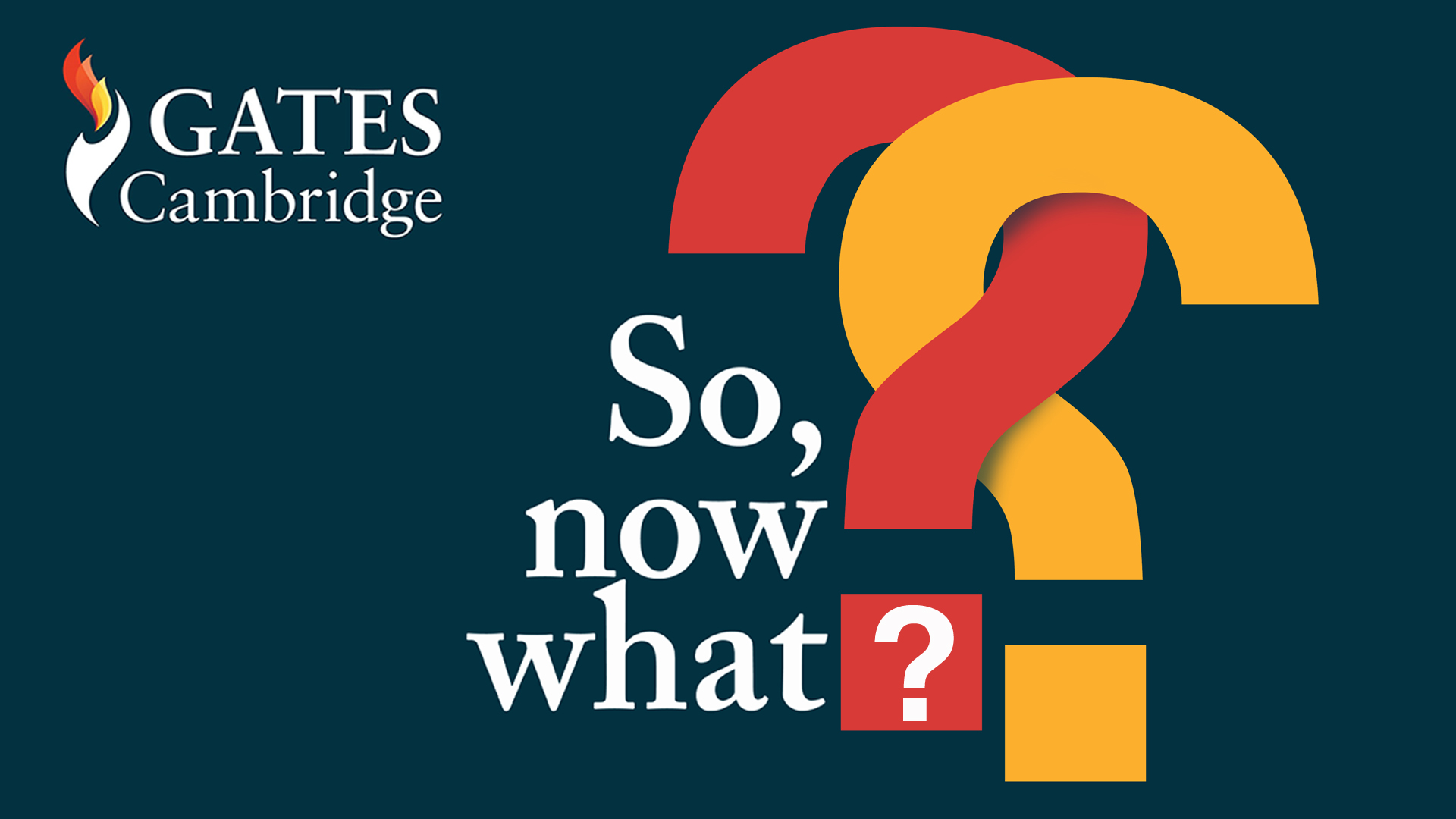
Three Gates Cambridge Scholars explore political legitimacy in the latest episode of the Gates Cambridge podcast.
Three Scholars debate how we can strengthen political legitimacy in a polarised world in the latest episode of the Gates Cambridge podcast, out today.
Promise Frank Ejiofor [2022] who is doing a PhD in Development Studies, Ayala Panievsky [2018], a journalist and PhD student in Sociology and political neuroscientist Leor Zmigrod explore the psychological and cognitive components of political beliefs, the impact of polarisation on journalism and the importance of understanding the perspectives of people on the ground in the latest episode of So, now what?
Hosted by international journalist Catherine Galloway, they also highlight the need for flexible thinking and the role of individuals in reshaping the media environment.
Asked at the end the question at the heart of the podcast – So, now what – they talk about the importance of spreading reliable information, supporting news organisations, engaging with diverse perspectives and reexamining our own individual dogmas. The conversation ends on a hopeful note, emphasising the power of empathy, honesty and pluralistic thinking.
Promise Frank Ejiofor’s research interests lie at the intersection of nationalism, citizenship, ethnic politics and security studies with a regional focus on Africa. His articles have been published in Ethnic and Racial Studies, Review of African Political Economy, Ethnopolitics, Critical Studies on Terrorism, African Security, Conflict, Security and Development, The RUSI Journal, Nationalities Papers, Peace Review amongst others. He is a member of the editorial board of Ethnopolitics.
Dr Ayala Panievsky is a researcher specialising in media under attack, right-wing populism and democratic backsliding. Her research appeared in journals such as The International Journal of Press/Politics and Digital Journalism, and featured in media outlets like the BBC, The News Agents, LBC and ABC. She is currently a Presidential Fellow in the Journalism Department at the City University of London, a Research Associate at the Sociology Department at the University of Cambridge and a Research Fellow at the Centre for the Renewal of Israeli Democracy. Her first book, The New Censorship, will be out next year with Footnote Press.
Dr Leor Zmigrod is a political psychologist and neuroscientist investigating the cognitive and biological factors that make individuals susceptible to dogmatic and extreme ideologies. She was listed on Forbes 30 Under 30 in Science and has won numerous prizes, including the Women of the Future Science Award. Her first book, The Ideological Brain, is forthcoming in 2025.












